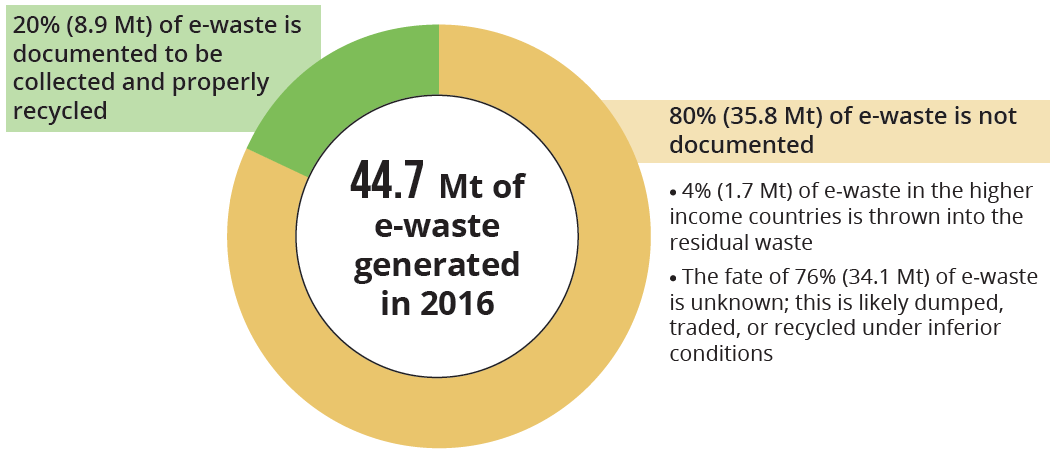All About Recycling Lives Services

Anything with electric or electronic parts, a plug or a battery is classified as WEEE and should not be disposed of with your basic waste. Electrical things will certainly have a logo with a crossed-out wheelie bin on their product packaging. The suppliers, manufacturers and sellers of the tools aid spend for old electric products to be reused.
You can take all household electrical items to Oxfordshire's waste recycling centres for recycling. If your thing remains in working problem, think about donating it. If your electric product is damaged, you can try to find a neighborhood fixing caf where volunteers can repair it. You could also consider borrowing electrical things that you don't make use of regularly. In addition, all Oxfordshire local authorities accept vapes and e-cigarettes as a different kerbside collection. Disposable vapes be put inside your wheelie containers. How they are gathered in each location differs somewhat; inspect you have the appropriate info for your location. Utilize the Waste Wizardsearch tool to inspect how your regional authority collects this waste or find various other drop-off areas in your area.
Mobile batteries the kind you locate in tiny handheld devices can also be reused at the kerbside yet not inside any of your bins. Larger stores that offer batteries also have collection points for recycling old batteries.
The Ultimate Guide To Recycling Lives Services
Older-style filament or halogen light bulbs can be disposed of in your general rubbish bin at home. Some Do it yourself shops also have collection points for light bulbs.

Fascination About Recycling Lives Services
Electric things are damaged down right into different pasts to make sure that the various products they are composed of can be eliminated and reused. Waste reusing centres are for usage by owners just and can not accept waste from commercial sources. However, local business and investors have a task of treatment under this system, which suggests they also need to adhere to the WEEE policies.
E-waste, digital waste, e-scrap and end-of-life electronics are terms commonly used to explain used electronic devices that are nearing the end of their useful life, and are discarded, contributed or offered to a recycler. The UN specifies e-waste as any type of discarded items with a battery or plug, and includes hazardous and harmful substances such as mercury, that can pose extreme danger to human and environmental wellness.
A Biased View of Recycling Lives Services
Just 17.4% of this electronic waste, consisting of a mixture of harmful substances and valuable products, will certainly be videotaped as being effectively gathered, dealt with and recycled - https://recyclinglivesservices.godaddysites.com/f/recycling-lives-services-transforming-waste-and-lives. Many initiatives are carried out to tackle this growing worry, but none can be totally reliable without the energetic role and right education of consumers

Furthermore, extracting thrown out electronics creates 80% much less exhausts of co2 per device of gold compared to mining it from the ground. In 2015, the extraction of raw materials represented 7% of the world's energy usage. This suggests that relocating in the direction of the use of even more additional resources in electronic products can assist considerably within the targets laid out in the Paris Arrangement on environment adjustment.
5 Easy Facts About Recycling Lives Services Shown
Every tool ever before generated has a carbon footprint and is adding to human-made international warming. Produce website here a tonne of laptops and potentially 10 tonnes of CO2 are discharged. When the carbon dioxide released over a tool's lifetime is considered, it mostly happens during manufacturing, before customers get an item. This makes lower carbon processes and inputs at the manufacturing phase (such as use recycled resources) and product lifetime essential components of general ecological influence.
Even in the EU, which leads the globe in e-waste recycling, just 35% of e-waste is formally reported as effectively gathered and reused. The absence of recycling weighs greatly on the international digital industry and as devices come to be much more many, smaller sized and more complicated, the concern rises.
The remaining mass of e-waste mostly plastics tied with metals and chemicals positions a more unbending trouble. A new vision for the manufacturing and consumption of digital and electrical goods is required. It is easy for e-waste to be framed as a post-consumer problem, however the problem includes the lifecycle of the gadgets everyone utilizes.
Comments on “Recycling Lives Services - Questions”